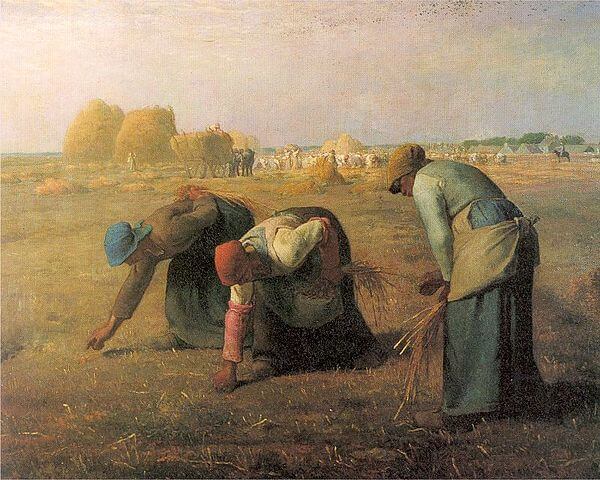Against Efficiency: Work Is Not The Point Of Work

In Paradise Lost, the hours before the Fall see Adam and Eve in a disagreement about work. Eve tells Adam they should part ways for the day so they can get more done, for when they are together, they distract one another with conversation and flirtation. Eve is not content the two are accomplishing enough. Every night, the day’s work of pruning and trimming is undone by the natural growth of the limbs and branches and fruit. But Adam is not persuaded this really matters. God cares little about the shape of the garden and much about man’s delight in it. If God were really so concerned with getting work done, Adam implies, why would he give us time to sleep? If God’s chief priority was getting the garden in order, why only create two people to tend it? God might have created a hundred men, or a thousand, and then the garden might have looked as fresh as a Marine’s haircut every morning at sunrise.
But God did not create a hundred men. Just two. In telling the two to “be fruitful,” He asked Adam and Eve to do slowly, patiently, and pleasantly what He might have accomplished in mere moments. However, there was great joy and delight to be had in fulfilling the command to “be fruitful,” and God had no interest in efficiency. How could the God Who is outside time worry about efficiency? And how could the unfallen Adam care about efficiency? The idea of finishing a certain task in “a more timely fashion” was meaningless, for Adam and Eve had no expectation they would ever run out of time. Efficiency places value on time as a limited commodity, but for deathless beings, time is endless. Adam replies to his wife that man was made delight, for the love of God and the service of God’s friends, and that work exists that man might love God in his work. Work has no value in and of itself.
Granted, we do not live in such a world anymore. We do not have unlimited resources of time at our disposal, and it is possible for a man to run out of time without accomplishing all he needs to do. However, the imposition of time on our lives does not change the fact we were made for delight in God, not for work. Work is not the point of work. When a man obscures the love of God with his commitment to work, he becomes a slave. A slave lives in fear, as St. Paul suggests in Romans, for the slave is commanded from above with coercive threats. If a man neglects the knowledge of God in his work, he has been reduced to a chattel, for he regards himself as purely physical object.
The good teacher does not assign his students work and leave them on their own to discern God in their labor. If this were the case, the students would be better off quitting school and getting jobs at the mall, for the manager at Claire’s could just as easily tell them, “Find God in your work,” and pay them eight dollars an hour to do so. “Find God in your work” is no better than “Be warm and filled.” The good teacher’s primary goal is not curating, assigning, collecting, and assessing work, but in showing students how to discern God; work merely gives an occasion to discerning God. If the ultimate point of work is “practice”, the work is nonetheless slavish, for what is the point of practice?
Teachers should recognize that they will be tempted to justify petty, slavish assignments with specious claims of spiritual value. The teacher himself does not entirely know how to discern God and regularly reduces his task of teaching to labor, to paycheck-earning toil, to “gathering and collecting.” “Whatever your hand finds to do, do it with all your might,” except on Mondays and at the end of the semester. At this point in the year, I will wager every teacher has assigned aimless, materialist, slavish labor to his students at least once… I mean some grade-harvesting, hours-passing, idle-hands-are-the-devil’s-workshop level dig-a-hole-and-fill-it-in bureaucratic drone business which could not be justified on a spiritual level. But Christian teachers should regularly assign work that atheist teachers simply could not give. “Peace I give you, but not as the world gives,” teaches the Christ. “Work I give you, but not as the world gives,” says the good teacher.

Joshua Gibbs
Joshua Gibbs teaches online classes at GibbsClassical.com. He is the author of How To Be Unlucky, Something They Will Not Forget, and Blasphemers. His wife is generous and his children are funny.










